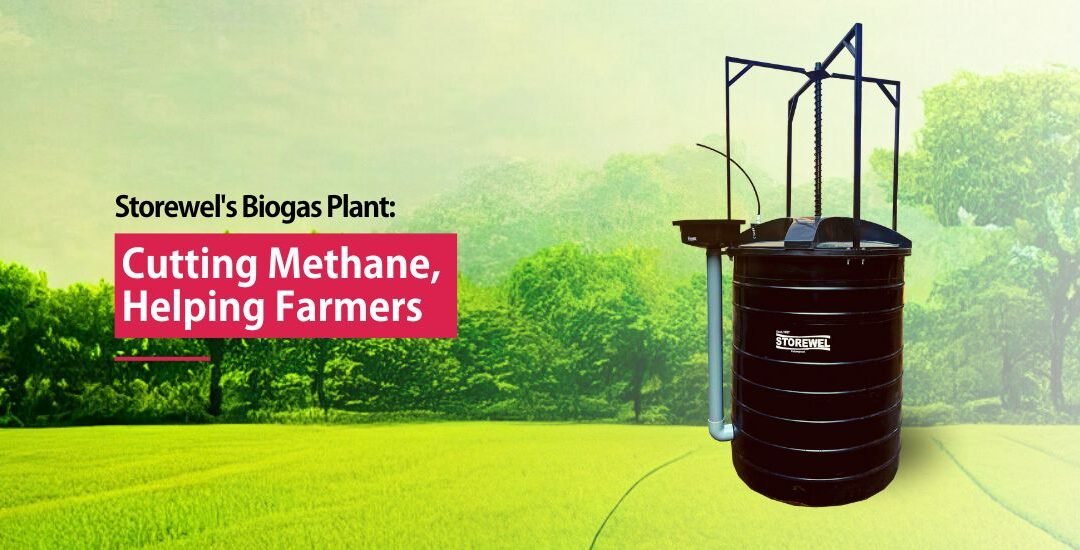Methane, a potent greenhouse gas, significantly contributes to global warming, with agriculture being a primary source. Farmers can play a crucial role in mitigating these emissions by adopting biogas technology. Storewel’s Biogas Plant offers an efficient solution to convert organic waste into renewable energy, benefiting both the environment and farm operations.
Understanding Methane Emissions in Agriculture
The Role of Biogas Plants
Storewel’s Biogas Plant is a prefabricated, portable system that can be installed within 30 minutes using standard tools. Key features include:
- High-Quality Construction: Made from durable plastic materials, ensuring longevity and resistance to environmental factors.
- Maintenance-Free Operation: The unibody construction eliminates joints or welds, preventing leaks and reducing maintenance needs.
- Portability: Lightweight design allows for easy relocation as needed.
- Comprehensive Accessories: Comes equipped with necessary components such as a biogas stove, plumbing materials, and a slurry filter.
By utilizing cow dung and kitchen waste, farmers can generate biogas to replace conventional cooking fuels like LPG, leading to cost savings and a reduction in methane emissions. The resulting slurry can be separated into solid and liquid components; solids can be used as manure, while liquids provide nutrients for plants and crops, promoting organic farming practices.
Environmental Impact
Storewel’s Biogas Plant provides a practical and sustainable solution for farmers aiming to reduce methane emissions and enhance farm productivity. By converting organic waste into valuable resources, farmers can contribute to environmental conservation while reaping economic benefits.
For more detailed information on the environmental benefits of biogas technology, refer to the IEA’s report on biogas and biomethane.


